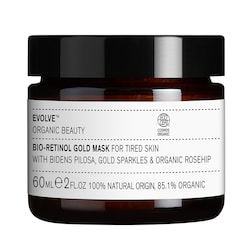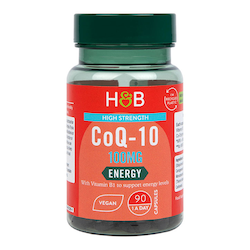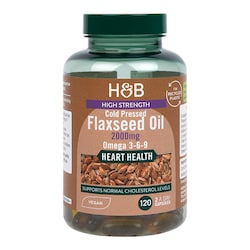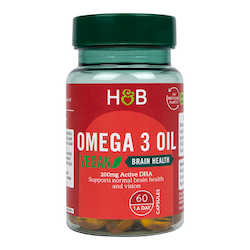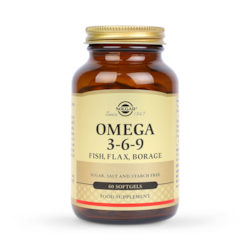20% off £35
Code:OFFER
Bidens Pilosa: Uses & science-based benefits
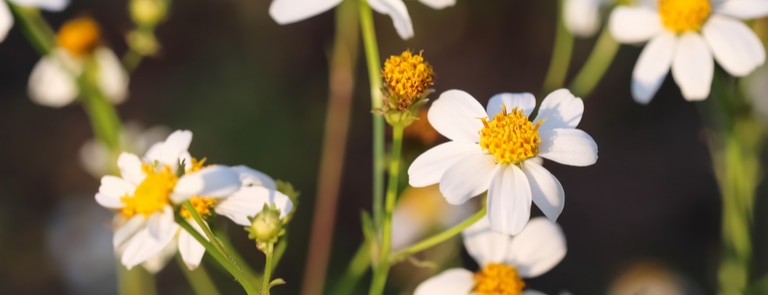
What is Bidens Pilosa? What’s it used for, what are the benefits of using it & what’s its connection to skincare? We answer your questions in this article…
Summary
1What is Bidens Pilosa?
It's a plant that’s part of the Asteraceae plant family. It originates from South America, but can now be found growing all over the world...
2What is Bidens Pilosa used for?
In some parts of the world, Bidens Pilosa is used for food and medicinal purposes, and has been for a very long time. Meanwhile, in the world of...
3What are the health benefits of Bidens Pilosa?
Bidens Pilosa and diabetes, it has been traditionally used an anti-diabetic medicine although its abilities in relation to diabetes is supported...
Bidens Pilosa – have you heard of it and are wondering what on earth it is and what it’s used for?
Well ponder no more, because this article is designed to provide you with an introduction to the world of Bidens Pilosa – what it is, what it’s commonly used for, what’s good about it and, more importantly, its connection to beauty (because there is one and it’s actually pretty ground-breaking stuff!)
What is Bidens Pilosa?
Bidens Pilosa is a plant that’s part of the Asteraceae plant family. It originates from South America, but can now be found growing all over the world. Like most plants, it goes by several names, including Spanish Needle, Black Jack and Hairy Beggarsticks.1
Although we’ve just referred to it as being a plant, Bidens Pilosa is actually a weed that’s renowned for growing and spreading extremely rapidly. One plant alone can produce up to 6,000 seeds a year, which can live for around five to six years.
Old Black Jack can grow in most habitats and soil types and the leaves and roots contain toxins that prevent any plants that are around it from growing.2
Bidens Pilosa is distinguishable by the rate at which it grows and ground space that it’s capable of covering, as well as the barbed seeds that are produced by its white and yellow, almost daisy-like looking flowers, that stick really easily to passers-by (animals included).
In some parts of the world, such as in sub-Saharan Africa, Bidens Pilosa is used for food and medicinal purposes.

What is Bidens Pilosa used for?
In some parts of the world, Bidens Pilosa is used for food and medicinal purposes, and has been for a very long time.3 Meanwhile, in the world of cosmetics, it’s actually a plant bio-retinol (more on this below).
- As a vegetable and sauce
In sub-Saharan Africa, the fresh shoots and young leaves are eaten as a vegetable. It’s also used to make a sauce – the leaves are picked from the plant and part boiled, then left out to dry in the sun and stored in powder form.
In Uganda, the leaves are boiled in sour milk. It’s only the fresh leaves that are consumed; the older leaves have a bitter taste to them.4
- As a medicine
Bidens Pilosa is used as a medicinal plant throughout Africa, Asia and tropical America.
The roots, leaves and seeds reportedly have a long list of positives connected to them, which include:
- Antibacterial
- Antidysentery (prevents dysentery)
- Anti-inflammatory
- Antimicrobial
- Antimalarial
- Diuretic
- Hepato-protective (prevents liver damage)
- Hypotensive (lowers blood pressure)
In Uganda, there are several medicinal uses for it. The sap from the leaves is used to speed up blot clotting in fresh wounds, while the sap from the plant is used to help treat ear infections. The leaves are used to create a powder that’s used to treat kidney problems, as a well as a herbal tea to help with flatulence. Extracts of Bidens Pilosa are used in southern Africa to cure malaria.
Meanwhile, in South Africa, the leaves are used to ease arthritis. And in Nigeria, the powder or ash from the seeds are applied as a local anaesthetic to cuts.
In other parts of the world, Bidens Pilosa is used to create dyes, food for livestock, and to make tea and wine. The list of uses for this particular plant are extremely varied, many of which have been used for centuries.
- As a bio-retinol
Bio-retinols are a plant-derived version of retinol, or and Bidens Pilosa is one of them. Bio-retinols don’t stem from Vitamin A however, they do work on the skin in the same anti-ageing way that retinols do.
An example of a bio-retinol is Evolve's Bio Retinol Gold Mask:
This particular face mask contains a natural, retinol-like plant extract from Bidens Pilosa that works on skin to deliver the same rejuvenation benefits that retinols offer.
It also contains rosehip oil and argan oil, making it rich in Omega 3 and 6 that help to look after and moisturise to create glowing skin. Meanwhile, the gorgeous golden shimmers come from the mineral, mica, making it an extremely luxurious face mask.
However, unlike retinol, which can make skin sensitive to the sun, Evolve’s Gold Mask can be used at any time, all-year round, making it the perfect way to nourish and protect your skin and enhance your summer glow.
It also contains rosehip oil and argan oil, making it rich in Omega 3 and 6 that help to look after and moisturise to create glowing skin. Meanwhile, the gorgeous golden shimmers come from the mineral, mica, making it an extremely luxurious face mask.
- Apply a thick layer of Bio Retinol Gold Mask to freshly cleansed skin.
- Leave on for five minutes.
- Rinse clean with warm water.
Helianthus Annuus (Sunflower) Seed Oil*, Glycerin**, Kaolin, Prunus Amygdalus Dulcis (Sweet Almond) Oil*, Argania Spinosa (Argan) Kernel Oil*, Mica, Titanium Dioxide (CI77891), Silica, Iron Oxide (CI77491), Sucrose Laurate, Rosa Canina (Rosehip) Fruit Oil*, Parfum (Natually derived Fragrance), Bidens Pilosa Extract, Astrocaryum Murumuru Seed Butter, Gossypium Herbaceum (Cotton) Seed Oil, Linum Usitatissimum (Linseed) Seed Oil, Citrus Aurantium Dulcis (Orange) Fruit Water*, Vanilla Planifolia Fruit Oil, Tocopherol, Sucrose Stearate, Sucrose Palmitate, Tin Oxide.
*Ingredients from Organic farming
**Made using Organic Ingredients
Denise - 5/5 stars
"The Best mask I have ever had! There are so many gold masks on the market but I am happy I chosen evolve beauty range. The price is reasonable and I can already see the results on my skin. Would definitely recommend!"
What are the health benefits of Bidens Pilosa?
Bidens Pilosa has been traditionally used an anti-diabetic medicine although its abilities in relation to diabetes is supported by limited research at present.
Early animal research has shown that it reduced blood glucose levels and increased serum insulin levels in mice. They were given Bidens Pilosa water extract every day for 28 days. The study also concluded that the Bidens Pilosa improved gluten tolerance.6
Early animal research has investigated Bidens Pilosa’s effect on food intake, fat content and body weight. One particular study found that it decreased body weight gain and fat content. It also led to reduced lean tissue.
It was reported that Bidens Pilosa’s anti-obesity functions were down to its ability to inhibit the Egr2, C/EBPs and PPARγ pathways within adipose tissues.
In turn, this anti-obesity action reduced appetite and fat digestion/absorption and/or increase of lipid breakdown, as well as energy use.7
Bidens Pilosa has an retinol-like effect on skin in that it can help treat the effects of skin ageing and photoaging (e.g. fine lines, wrinkles, looser skin, spots and pigmentation), but without the sensitivity that can sometimes come with using a non-plant based retinol product.8
Numerous tests have been carried out that have evidenced the benefits of Bidens Pilosa and how it acts like a typical retinol on skin. They include in vitro tests that demonstrated that Bidens Pilosa increased collagen 1 by 24%, functional elastin by 42% and sirtuin-6 gene expression (linked to cell longevity) by 2.4 fold.
Due to its high natural fibre levels, Bidens Pilosa, is believed to help encourage regular bowel movements and help ease constipation. Its high fibre content also reportedly promotes healthy digestion – it acts as a prebiotic by creating a suitable environment for proper multiplication and function of healthy gut bacteria.9
Again, because of its high fibre levels, Bidens Pilosa is believed to help reduce bad cholesterol levels while increasing good cholesterol, preventing plaque build-up in blood vessels and reducing the risk of experiencing heart attacks and strokes.
As we mentioned a bit further up, Bidens Pilosa also reportedly reduces body fat (visceral fat) levels that can increase the risk of heart disease, heart attack, stroke, diabetes, cancer, and other chronic diseases.
What’s more, Bidens Pilosa’s antioxidant properties can also help keep the cardiovascular system in good health by reducing blood pressure and cholesterol.10
Side effects of Bidens Pilosa
While some research has been conducted into Bidens Pilosa’s impact on animal and human health, and it has traditionally been used as a source of food and medicinally worldwide, more research is required, particularly in relation to its effect on the human body.

If you intend on using Bidens Pilosa for health reasons, always speak to a medical professional first to make sure it’s safe for you to do so.
As for using Bidens Pilosa as a natural retinoid, always conduct a patch test first to see how your skin responds to it before applying it fully or on a regular basis.
Is Black Jack poisonous?
The leaves of the Bidens Pilosa AKA Black Jack plant have long been boiled, stir fried or turned into a powder for nutritional and medicinal purposes, which suggests it may be safe to consume.
However, some studies have reported that it may contain metals, including cadium, as well as arsenic, making it harmful for humans. It’s thought that the soil the plant is grown in may influence these levels and the wider materials it may contain that are absorbed from the ground.11
Bidens Pilosa – how much is safe to use?
Given the fact research into the effects of Biden Pilosa is limited, and most studies to date have been carried out on animals, further exploration of safe human dosage levels is required.12
A 1g daily dose of Bidens Pilosa aqueous extract is generally recognised as being safe in rats. However, current information about the toxicology studies of Bidens Pilosa is fragmented and insufficient for a complete safety assessment.
Therefore, a comprehensive investigation of the long-term toxicology is required in relation to determining how much humans can safely use of it.
Takeaway
Bidens Pilosa is much more than just a weed. It’s a weed with a long history of traditionally being used for medicinal and nutrition in many parts of the world.
The rate at which it grows and the way it sticks to anything that brushes past it, not to mention its ability to prevent other plant growth, may result in it being classed as nothing more than a nuisance, but it does have so much more to offer.
This one weed alone has been shown to have antibacterial, antidysentery (prevents dysentery), anti-inflammatory, antimicrobial, antimalarial, diuretic, hepato-protective (prevents liver damage) and hypotensive (lowers blood pressure) properties.
As a result, it has been linked to several health benefits, from improving cardiovascular health to preventing diabetes. But perhaps one of the best things about it (and our favourite thing about it) is its ability to provide retinol-effect results in a way that’s much kinder to skin.
The advice in this article is for information only and should not replace medical care. Please check with your GP or healthcare professional before trying any supplements, treatments or remedies. Food supplements must not be used as a substitute for a varied and balanced diet and a healthy lifestyle.
Last updated: 28 May 2021
- https://www.sciencedirect.com/topics/pharmacology-toxicology-and-pharmaceutical-science/bidens-pilosa
- https://www.cabi.org/isc/datasheet/9148#tosummaryOfInvasiveness
- https://www.sciencedirect.com/topics/pharmacology-toxicology-and-pharmaceutical-science/bidens-pilosa
- https://uses.plantnet-project.org/en/Bidens_pilosa_(PROTA)/
- https://www.evolvebeauty.co.uk/blogs/news/what-is-bio-retinol/
- https://www.researchgate.net/publication/23931326/
- https://www.nature.com/articles/srep24285
- https://www.freshlycosmetics.com/en/glossary-of-ingredients/bilens-pilosa/
- http://www.tibb.co.za/wp-content/uploads/2018/12/health-benefits-of-black-jack.pdf
- http://www.tibb.co.za/wp-content/uploads/2018/12/health-benefits-of-black-jack.pdf
- https://link.springer.com/article/10.1007/s40005-016-0231-6
- https://www.sciencedirect.com/science/article/pii/S2225411019300136


